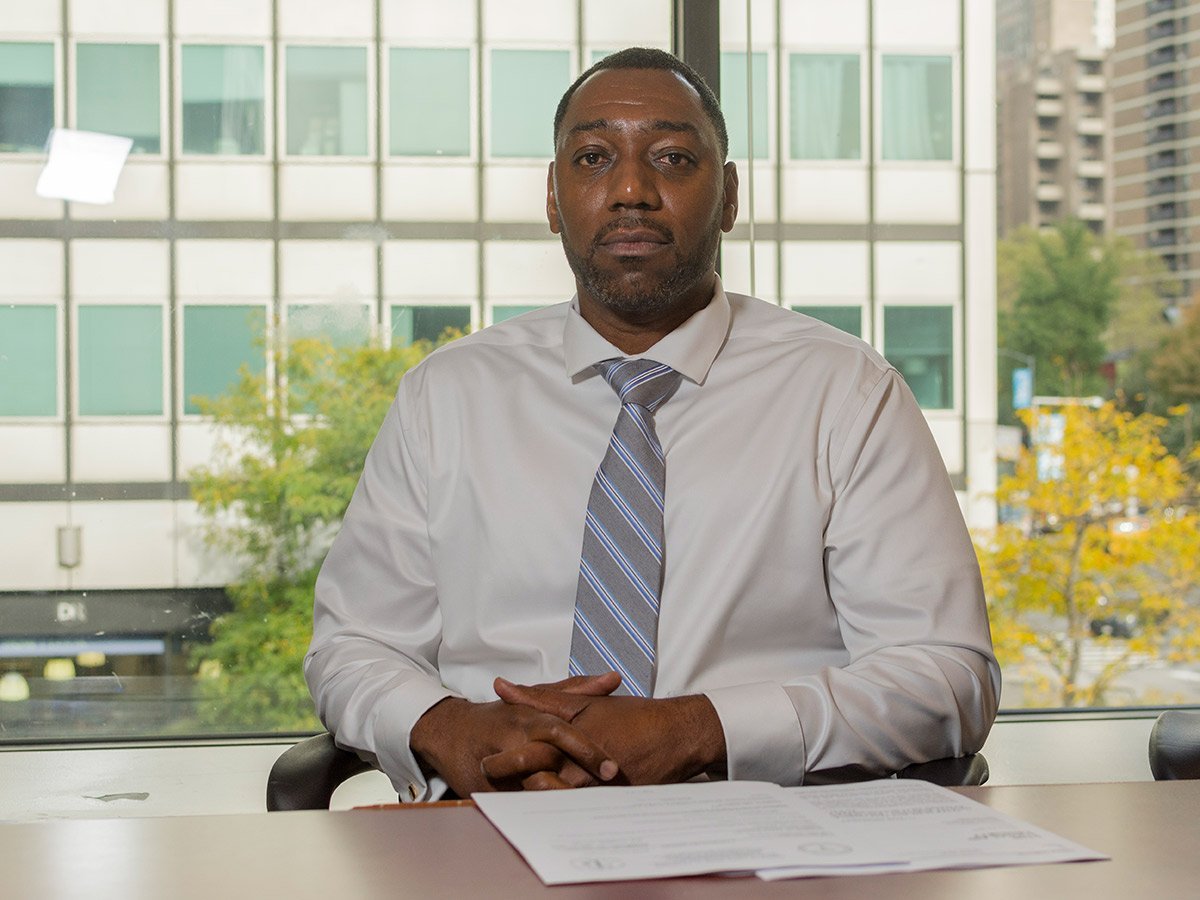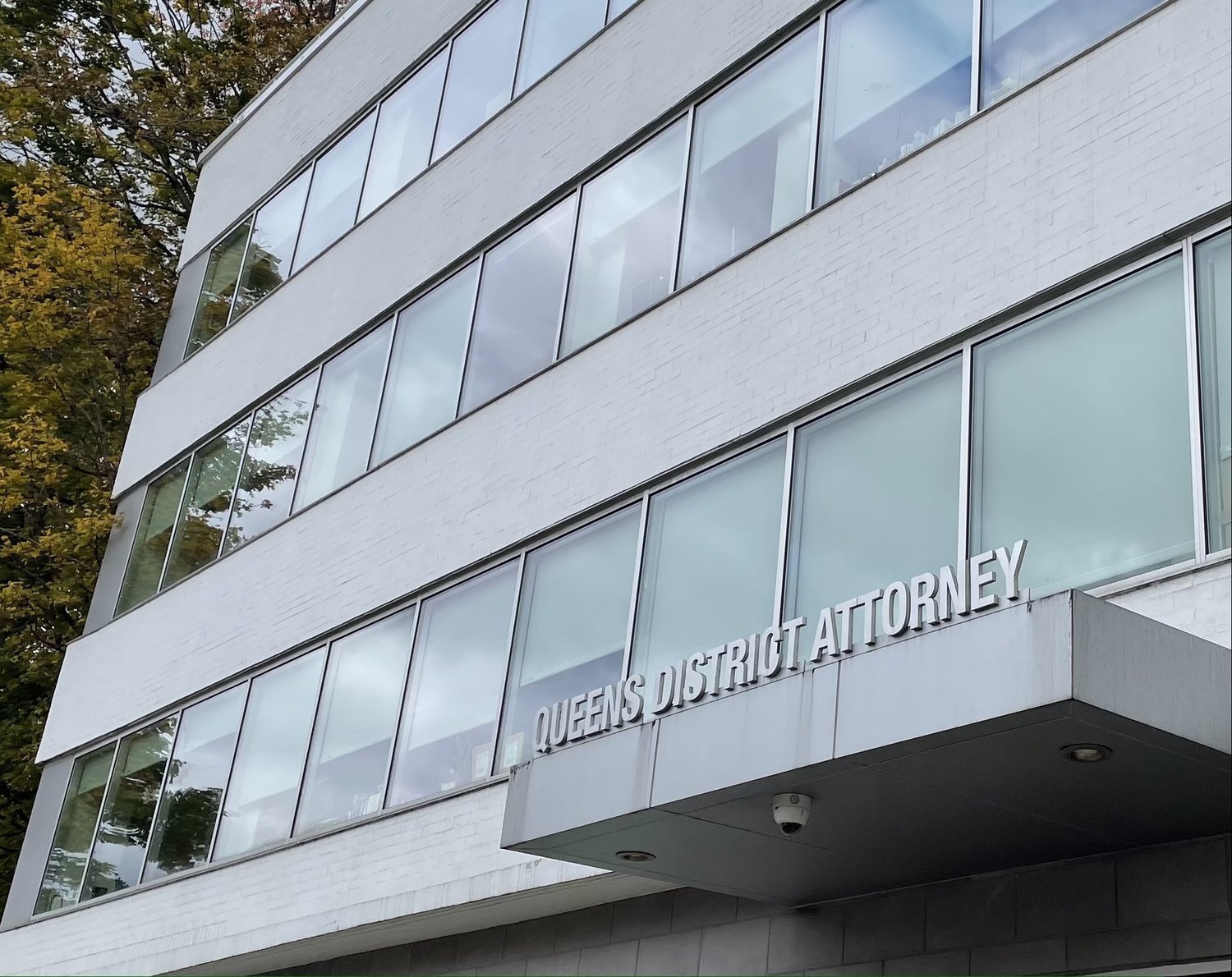‘Exonerated but not vindicated’: Top court rejects Queens DA’s attempt to reverse wrongful conviction
/The Court of Appeals rejected the Queens district attorney’s application to have the high court hear the case of Michael Robinson, who was recently found to have been wrongfully convicted. File photo via The Legal Aid Society
By Jacob Kaye
The Court of Appeals has rejected an attempt by Queens prosecutors to overturn a ruling made by a mid-level court earlier this year that found that a local man had been wrongfully convicted of a Bayside murder three decades ago.
Court of Appeals Judge Shirely Troutman denied Queens District Attorney Melinda Katz’s application to appeal the March ruling made by the Appellate Division, Second Department in the case of Michael Robinson, who served nearly 30 years in prison for a murder he says he didn’t commit.
Though a panel of Appellate Division judges said that Robinson was more than likely not the man behind the murder of his then-estranged wife, Gwendolyn Samuels, in 1993, prosecutors in the Queens district attorney’s office have been thus far unwilling to let the ruling stand.
In June, the Queens DA’s office attempted to get the case kicked up to the state’s top court, filing what’s known as a criminal leave application. A little more than a month later, their application was rejected.
For Robinson, who describes his case as having a number of emotional ups followed by a number of downs, Troutman’s decision validates what he’s been trying to convince judges, prosecutors and law enforcement of for years.
“My family and I were very pleased with the decision,” Robinson told the Eagle this week. “It’s something we were expecting.”
Robinson’s case will now again head back to Queens’ Criminal Court, where Katz’s prosecutors will make their final decision about how they want to proceed in the case.
They can, once and for all, accept the appellate court’s ruling, letting Robinson’s wrongful conviction stand. Or they can retry a case where the defendant has already completed his sentence, the main witness is long dead and in which new DNA evidence may make obtaining a conviction even more difficult.
“I’ve been exonerated but I haven’t been fully vindicated,” Robinson said. “Until that happens, I can’t move forward with my life.”
A spokesperson for the Queens DA’s office declined to answer the Eagle’s questions about how the office will proceed in the case.
In response to a request for comment about the Court of Appeals’ decision, the spokesperson said that the DA’s office “respect[s] the court’s decision and will review our options.”
Getting the Court of Appeals to hear the case was always going to be an uphill battle for the district attorney’s office. Of the cases the state’s top court hears – and it’s hearing fewer and fewer of them each year – only a small minority of them are criminal appeals.
Harold Ferguson, the staff attorney with the Criminal Appeals Bureau at The Legal Aid Society representing Robinson, said that he largely expected Troutman to reject the case.
“We thought there was no possibility that they would grant leave,” Ferguson told the Eagle. “But once it was six weeks [since the application had been filed], we we're getting a little concerned. But [Troutman] is just diligent.”
Despite the ups and downs of the case, Ferguson said that there have been very few times that he’s been surprised, save for at least one moment.
“The only thing unique about Mr. Robinson’s case is that we never win these,” he said.
Delay after delay
Robinson, who was raised in Springfield Gardens, was convicted in the killing of his estranged wife in 1993. Prosecutors said that Robinson stabbed Samuels to death inside the Bayside home of Alveina Marchon, who employed Samuels as a home health aide.
To obtain the conviction, the prosecution relied on the testimony of Marchon, who was 88 years old at the time and the only eyewitness to the murder. Though Marchon gave inconsistent accounts of the murder – and was later found to be legally blind – Robinson was convicted and sentenced to 25 years to life in prison for Samuels’ murder. He had just turned 26 years old.
While in prison, Robinson looked for a number of avenues to prove that he had been wrongfully convicted, he previously told the Eagle. He initially appealed the conviction but it was upheld. He then requested the federal government review the case, which they declined to do in 1999.
His first break didn’t come until 2013, when after submitting a Freedom of Information Law request, he received a box. Among the items inside it was a police report that indicated that there was additional DNA evidence that had not originally been presented at trial, including blood stains on Samuels’ sweater, and hair and nail scrapings.
Acting without a lawyer, Robinson sought post-conviction DNA testing on the blood samples and blood stains. A judge rejected the motion without holding a hearing. Robinson, who completed his sentence and was released from prison in 2019, then obtained representation from the Legal Aid Society, which successfully appealed the case to the Appellate Division, Second Department, which sent the case back to the lower Queens court “for further proceedings to ascertain whether the subject DNA evidence exists and, if it does, for forensic DNA testing of that evidence.”
Another roadblock emerged – Robinson and his attorneys were told that the evidence they were looking for had been severely damaged when the building it was being held in sustained flooding during Hurricane Sandy.
What followed was a series of hearings to determine whether or not the damaged evidence could still be tested safely and produce a reliable result. In the end, a judge ruled that the testing could go forward. But that’s when the Queens district attorney’s office informed the court that the evidence was not in the flooded facility. It was instead with the office of the chief medical examiner. After testing the evidence, the medical examiner ruled that it wasn’t conclusive enough to support overturning the conviction.
Robinson and Ferguson then got Cybergenetics, a private lab, to review the evidence. Their findings were far more conclusive.
The Queens district attorney’s attempt to get the Court of Appeals to hear the case of Michael Robinson was rejected earlier this month. Eagle file photo by Jacob Kaye
The lab determined that the DNA suggested that it was 78 trillion times more likely that Robinson was not the killer, a finding the OCME, which conducted further testing, later agreed with.
Using the new evidence, Robinson’s attorneys filed a motion to have the conviction overturned. The motion was rejected by Queens Supreme Court Justice Stephen Knopf, whose decision was later overturned by the Appellate Division, Second Department.
In their since-rejected application to the Court of Appeals, the DA’s office argued that the appellate court didn’t have the authority to make a ruling in Robinson’s case, and that its assessment of the newly-discovered DNA evidence was wrong. It wasn’t enough to win over Troutman.
How to proceed?
The next appearance in the case is currently scheduled for Sept. 13. Though the DA’s office has been told to make a decision about how to move forward in the case by the September appearance, they have previously delayed making such decisions in the case.
Ferguson said that he believes the DA’s office is “certainly not going to declare [Robinson] innocent,” but he’s hoping that they decide not to proceed with the case, which would likely turn into a large lift for both the prosecution and the defense if it moves forward.
“If they intend to retry him, we start from square one,” Ferguson said.
“We're hoping they won’t proceed, but there's no guarantee because they have fought so hard to maintain this conviction from the beginning,” he added. “We really don't know how they're going to proceed on this and they're not providing us any clue which way they're going to go.”
The uncertainty is nothing new for Robinson or his friends and family, who have all seen what they consider good news followed by bad news, and bad news followed by good news over the years.
Jamal Green, Robinson’s family friend who calls Robinson his “brother,” said that he is optimistic going into what may very well be the final months in the 30-year saga.
“We’re winning the big races,” Green said. “The higher courts continued to make their rulings and I think [the DA’s office] looked at it as in for a penny, in for a pound. But I truly believe that they see this as a losing battle now.”
“The emotions go up and then it goes down, but it balances out because we know that in the end it’s going to be exactly what we prayed for,” Green added. “Vindication.”





